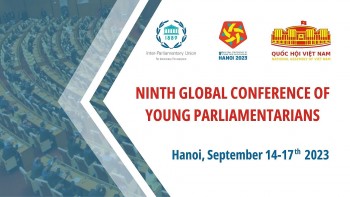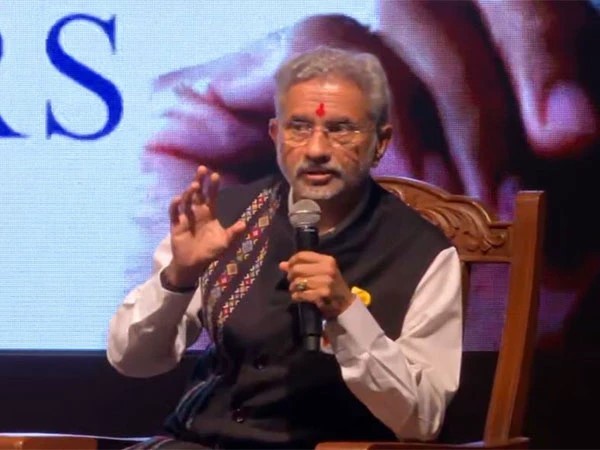Consumers should should come together to ensure the protection of their rights
Consumers should come together to find effective solutions for ensuring the protection of their rights as 90 per cent of consumers are ignorant about the organisations that protect their benefits.
This was revealed by a recent online survey of more than 1,200 customers, conducted by the Institute for Studies of Society, Economy and Environment (iSEE).
The survey further revealed at a conference on "Vietnamese consumers' rights: Issues and Solutions" held in Ha Noi yesterday that most people pay attention to basic information, such as production date, price, trade mark and origin.
In addition, customers often chose to buy a product, based on available information on social networks or experiences of their relatives or friends, but do not care about corporate social responsibility.
 |
Ha Noi Market Watch inspects bread sold at Fivimart supermarket in Hai Ba Trung District. Most consumers are ignorant about the organisations that protect their rights, a survey revealed. – VNA/VNS Photo Nguyen Khang
The survey also pointed out that 46 per cent of consumers bought products, whose quality was poorer than advertised, while 40 per cent of the people bought products with unclear information about the origin of ingredients.
However, only 2 to 3 per cent of Vietnamese file complaints or lawsuits when their rights are violated. The main reason for this is that they are afraid of spending extra time and money, and our unaware of protection mechanisms they can use.
Up to 98 per cent of consumers are not even members of consumers protection associations or clubs.
Nguyen Manh Hung, vice chairman and general secretary of the Viet Nam Standards and Consumers Association (VINASTAS), said customers should associate with each other to protect themselves.
"In reality, boycotting products of organisations or inpiduals selling poor-quality products has a stronger effect than punishments," Hung stated.
He added that around 1,000 complaints a year are sent to VINASTAS, which is much lower than the actual number of such complaints existing in reality. The association has also extended support for helping resolve complaints with a success rate of over 80 per cent.
Hung proposed that the Government should enhance communication among consumers by using the available complaints mechanism for asserting their rights and building a financial system for consumer protection fund.
In addition, the administrative procedures involved in filing lawsuits should be simplified.
"Customers often ignore violations easily or simply share them on a social network when buying poor quality products. This reflects a lack of active opposition. Consumers should seek out organisations representing their rights to settle cases related to such violations," he added.
Le Quang Binh, chairman of the People's Participation Working Group (PPWG), said the Law on Consumer Protection stipulates that protecting customers is the common responsibility of the Government and society. However, the governmental agencies should implement this duty better.
Sharing these ideas, Pham Que Anh, director of Consumer Unity & Trust Society in Viet Nam, suggested that compensation for consumers should not be paid by the State budget, but paid for customers through protection activities.
Anh added that the Government should not only allow inpiduals to file lawsuits against businesses, but also organisations, which represent consumers and take up such work for the community's benefit.
Phan Thanh Ha from Ha Noi's Cau Giay District narrated a bad experience she had while buying an electronic appliance online. The product was not as good as described in the advertisement. However, she did not make any complaint to the seller and instead accepted having to buy another product.
"Most customers are afraid of making complaints to the producers or sellers. We have never thought of filing a lawsuit as it is considered a waste of time and money," she said, adding that she had shared her experience with some of her friends on Facebook to help them avoid buying the product.
"I'd rather buy a new one. It is the safest and fastest way to avoid having any further problems."
Last year, the country had received 1,551 complaints from customers of which 471 cases were resolved successfully./.
Complied by VNF
Recommended
 National
National
Vietnam News Today (Apr. 19): Vietnam, UK Sign New Agreement on Illegal Migration
 National
National
Czech Senate President Proposes Opening Hanoi - Prague Flight Soon
 National
National
Vietnam News Today (Apr. 18): Vietnam, Russia Bolster Education, Training Collaboration
 National
National
First Int'l Trauma Life Support Training Center Launched in Vietnam
Popular article
 National
National
Vietnam News Today (Apr. 17): Vietnam And Hungary Review Effectiveness of Cooperation Agreements
 National
National
Vietnam News Today (Apr. 16): Australia Supports Climate Action Cooperation With Vietnam
 National
National
Vietnam News Today (Apr. 15): Vietnam Supports UN’s Humanitarian Aid For Palestinians
 National
National





